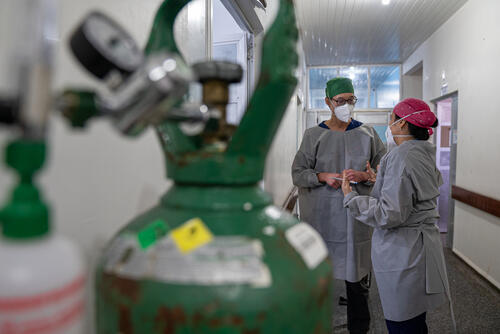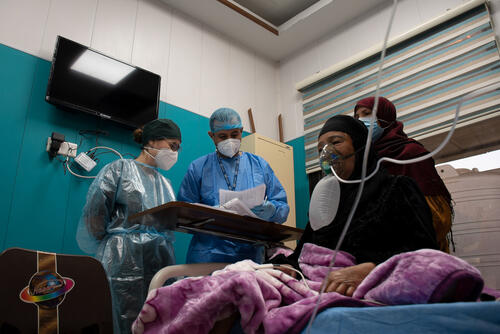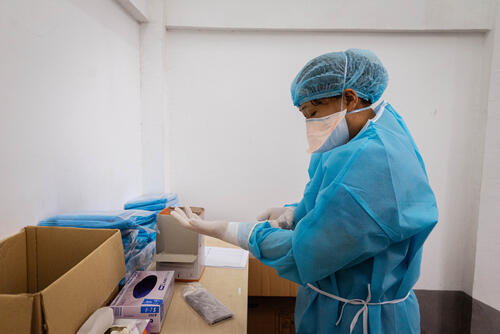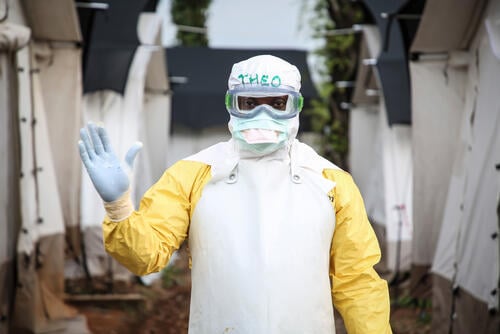This report is the fourth of the accountability reports MSF is producing on our COVID-19 response. You can also read the first report, covering the period March - May 2020, the second report, covering the period June - August 2020, and the third report covering the period September - December 2020.
The end of the year 2020 marked a turning point in the global pandemic response, as first COVID-19 vaccines became available to priority groups, including elderly people, frontline health workers and high-risk patients. Nonetheless, the pandemic continued to put severe pressure on health systems and led to strict lockdown measures in both low- and high-resource settings around the world.
In many countries, sustained new waves of high COVID-19 infection rates again caused large numbers of patients requiring specialised care, while vaccination efforts only advanced slowly due to vaccine scarcity, and related supply and distribution challenges.
From late 2020 and into the new year, several new, more infectious variants of the SARS-CoV-2 virus raised concerns over accelerating transmission. In January and February 2021, multiple countries in the Middle East and Northern Africa, South-East Asia, and across the African continent showed increasing trends in case numbers, while alarming rates of new infections and related deaths also continued to be reported from South and Central American countries. March and April saw multiple COVID-19 hotspots resurging around the world, with particularly alarming infection rates in southern Asia.
Over the first months of the new year, the global number of confirmed COVID-19 infections nearly doubled from 82 million at the end of 2020 to more than 150 million by the end of April 2021. More than 1.4 million patients died from COVID-19 related complications during the same period, adding to close to 3.3 million confirmed deaths since the beginning of the pandemic.
In 2021, we maintained dedicated COVID-19 activities in some 165 projects in 52 countries, working alongside local health workers, and supporting hospitals and treatment facilities to deliver medical care and improve infection prevention and control measures. Our teams continued to provide protection and care for vulnerable populations in remote communities, people on the move, homeless people, and elderly people living in long-term care facilities. In all its projects around the world, MSF also worked to maintain other essential healthcare services amid lockdown and confinement measures.
While several COVID-19 projects could be closed or reintegrated into regular MSF operations at the end of 2020, the new year saw multiple new or reactivated COVID-19 operations in hard-hit countries on five continents. Compared to the previous four months, the number of our projects reporting dedicated COVID-19 activities from January to April only reduced by eight per cent. Since the beginning of the pandemic in March 2020, our teams responded to COVID-19 in more than 330 different projects in 72 countries.






